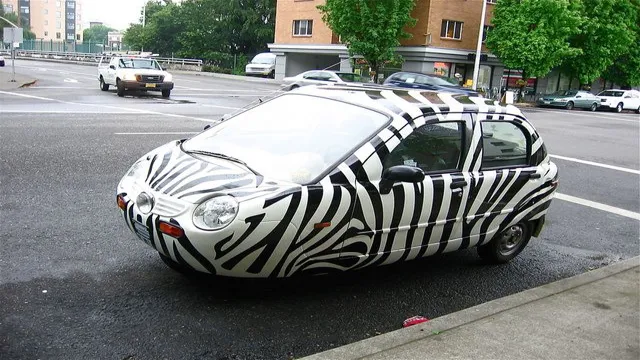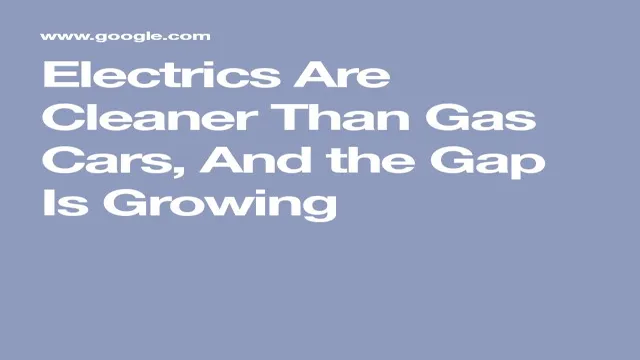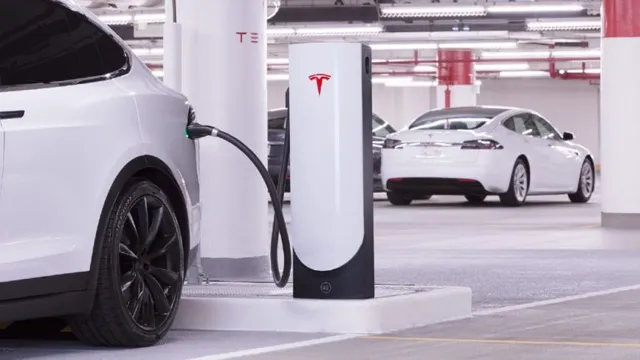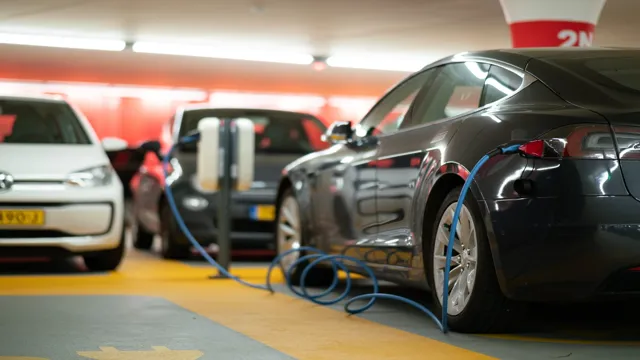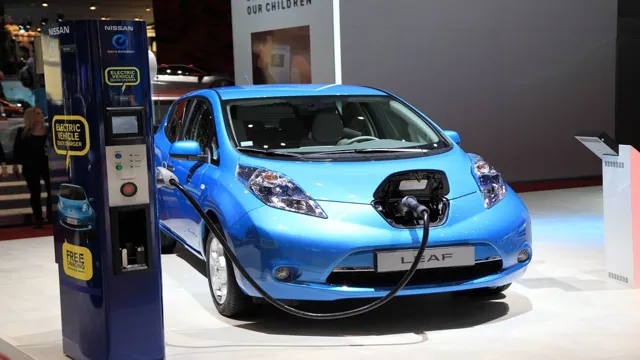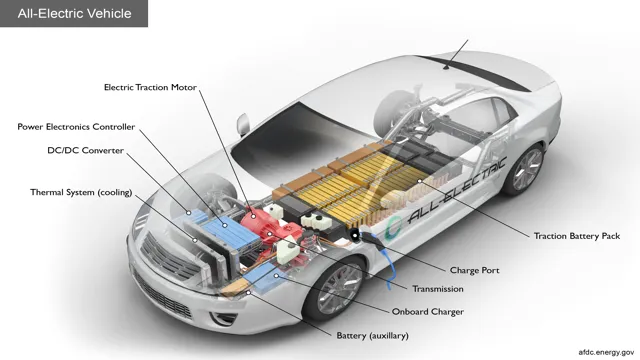Debunking the Myths: Are Electric Cars Really Bad for the Planet?
Electric cars have become an increasingly popular mode of transportation for drivers looking to reduce their carbon footprint. However, some skeptics ask the question: Are electric cars bad for the planet? While it might seem counterintuitive to suggest that an eco-friendly vehicle is doing harm, some claim that the production and disposal of electric car batteries could be more harmful to the environment than traditionally fueled cars. So, which is it? Are electric cars actually worse for the planet, or are they a more sustainable option for the future? Let’s take a closer look.
Electric cars emit fewer greenhouse gases.
Are electric cars bad for the planet? This is a common question that many ask. The answer is no. Unlike traditional gas-powered cars, electric cars do not emit harmful pollutants and greenhouse gases into the air, making them a more environmentally friendly option.
The reduction of carbon emissions helps to reduce air pollution and combat climate change. However, the production of electric cars does require the use of energy and resources, so it’s important to consider the overall lifecycle of an electric car, including the sourcing of materials, manufacturing, and disposal. Nonetheless, it’s important to note that electric cars have the potential to create a greener future for transportation, and as technologies continue to advance, we can work towards a more sustainable future.
So, while they may not be perfect, electric cars are certainly a step in the right direction when it comes to reducing our carbon footprint.
Comparison of emissions from gasoline-powered cars vs electric cars.
Electric cars emit fewer greenhouse gases compared to their gasoline-powered counterparts. When gasoline vehicles burn fuel, they emit harmful pollutants into the atmosphere, contributing to air pollution and global warming. On the other hand, electric cars are powered by rechargeable batteries, don’t produce any direct emissions, and produce significantly less overall emissions than traditional cars.
When the electricity for electric cars comes from renewable energy sources such as wind or solar power, there is virtually no greenhouse gas emission associated with driving. Therefore, switching to electric cars can significantly reduce our impact on the environment and help combat climate change. While the adoption of electric cars has been slow due to various factors such as range anxiety and compatibility issues, the long-term benefits of reducing greenhouse gases make it a worthwhile investment.

Electric cars are more efficient and use less energy.
Electric cars have become increasingly popular due to their efficiency and ability to reduce greenhouse gas emissions. Compared to gasoline-powered cars, electric cars convert a higher percentage of the energy stored in their batteries to power the vehicle, resulting in less energy waste. Additionally, electric cars emit less carbon dioxide and other harmful greenhouse gases, which is a significant benefit to the environment.
With the increasing prevalence of renewable energy sources such as wind and solar power, electric cars are becoming even more environmentally friendly as they rely on these sources to recharge their batteries. Furthermore, electric cars can also be charged at home, which reduces the need for frequent trips to gas stations and saves both time and money. All in all, switching to an electric car is a great way to reduce your carbon footprint while enjoying a more efficient and cost-effective mode of transportation.
Production of electric car batteries.
Electric cars are often perceived to be the solution to the worsening environmental situation. However, the production of electric car batteries should also be a topic of concern among environmentalists. The mining of raw materials, such as lithium and cobalt, used in the production of electric car batteries involves destructive practices that cause soil and water pollution.
Moreover, the manufacturing process of these batteries requires a lot of energy, which contributes to greenhouse gas emissions. Nonetheless, the long-term benefits of electric cars outweigh the negative impacts of battery production. Once on the road, electric cars produce less pollution than traditional gas-powered vehicles, saving millions of tons of carbon emissions every year.
In conclusion, it is essential to recognize both the environmental benefits and the impact of electric car batteries’ production. There is a need for sustainable mining practices and cleaner energy sources as manufacturers continue to produce this technology. We must strike a balance between addressing the environmental crisis and supporting technological advancements that promote a cleaner future.
Overall, electric cars are not entirely bad for the planet. However, there is much work to be done to ensure these vehicles are truly sustainable, from production to end-of-life disposal.
Environmental impact of mining the materials for batteries.
Mining the materials for electric car batteries can have significant environmental impacts. The process of producing lithium-ion batteries involves the extraction and processing of raw materials such as lithium, cobalt, graphite, and nickel. These materials are often located in environmentally sensitive areas and their extraction can lead to deforestation, water pollution, and loss of habitats for endangered species.
In addition, the production of these materials generates significant greenhouse gas emissions, especially if fossil fuels are used to power the mining and processing equipment. The disposal of the batteries can also pose a threat to the environment as they contain toxic substances that can leach into soil and water sources if not handled properly. It is important for manufacturers to invest in sustainable mining practices and for consumers to properly recycle or dispose of their used batteries.
By doing so, we can minimize the environmental impact of electric car battery production and use, while still enjoying the benefits of this innovative technology.
Recycling and disposal of batteries.
Electric car batteries are a crucial component of electric vehicles, as they store the energy required for a car to operate. However, the production of these batteries is not without environmental concerns. The primary materials used in their production, such as lithium and cobalt, are not only finite resources but also require large amounts of energy to extract and refine.
This process can result in significant carbon emissions and environmental damage. Additionally, once these batteries reach the end of their lifespan, they pose a challenge for recycling and disposal because of their complex composition and potentially hazardous components. To combat these issues, companies are exploring ways to create more sustainable and environmentally-friendly electric car batteries, such as using alternative materials that are easier to recycle and less harmful to the environment.
By doing so, we can continue to push towards a more sustainable future for electric vehicles while minimizing their impact on the planet.
Improvements in battery technology.
Electric car manufacturers have been pushing for improvements in battery technology to increase the range of their vehicles. With the increasing demand for electric cars, the production of electric car batteries has skyrocketed. The goal is to create batteries that can hold more energy, charge faster, and last longer.
The production of these batteries is not straightforward, though. Lithium-ion batteries, which are currently the most common type used in electric vehicles, require a lot of resources and have a significant environmental impact. However, research is being done to create more sustainable and eco-friendly batteries for electric cars.
Solid-state batteries, for example, have the potential to replace lithium-ion batteries and have a longer lifespan. Furthermore, advancements in battery manufacturing have led to faster production times while also reducing the cost of production. As the production of electric car batteries becomes more efficient, it presents a promising solution to help transition towards a more sustainable future.
Charging electric cars.
One of the most commonly asked questions about electric cars is whether or not they are bad for the planet. The answer, as with most things, is not cut and dry. When it comes to charging electric cars, the source of the electricity used to charge the car can greatly impact its overall environmental impact.
If the electricity used to charge the car comes from coal-fired power plants, then the car is essentially being powered by coal, which is a highly polluting and carbon-intensive energy source. However, if the electricity comes from renewable sources such as wind or solar power, then the car is essentially emissions-free. So, the impact of electric cars on the environment really depends on the broader energy mix of the grid from which they are charged.
Overall, electric cars have the potential to significantly reduce greenhouse gas emissions and provide a more sustainable transportation option but only if powered by clean, renewable energy sources.
Electricity sources for charging.
When it comes to charging electric cars, the sources of electricity used can vary. The most common method is to plug the car into a charging station, which can be found at public charging stations, or even at home. These charging stations usually draw electricity from the power grid, which means that the source of the electricity could be a mix of different sources, including fossil fuels, nuclear energy, and renewable sources like solar and wind power.
Another option is to charge the car using a portable charger that can be plugged into a standard wall outlet. However, it’s important to note that the charging time will be longer with this method, and it may not be practical for daily use. Ultimately, the electricity sources used for charging electric cars are an important consideration, as they can impact the overall carbon footprint of using an electric car.
By utilizing renewable sources of electricity, electric cars can be a key part of reducing emissions and creating a more sustainable future.
Renewable energy sources and their benefits.
“Charging electric cars using renewable energy sources” Electric vehicles (EVs) are becoming more popular than ever, and their demand will only continue to rise. However, EVs require a significant amount of energy to operate, which means we need to find more sustainable sources of power to reduce our carbon footprint. Fortunately, renewable energy sources such as solar, wind, and hydro power can provide clean energy to charge EVs and reduce our reliance on non-renewable fossil fuels.
Solar panels, for example, are particularly well-suited to charging EVs as they can be mounted on a carport or roof and supply power directly to the vehicle’s battery. Wind turbines, on the other hand, can generate enough power to charge several EVs at once, provided they are located in areas with suitable wind conditions. Similarly, hydro power from rivers and streams can be harnessed to generate electricity and power EV charging stations.
By using renewable energy sources to charge EVs, we can significantly reduce our carbon footprint and take a major step towards a more sustainable future. Additionally, generating renewable energy locally can also save money, reduce energy waste, and create jobs in the green energy sector. So, let’s embrace clean energy and charge our electric vehicles using renewable sources for a more sustainable and cost-effective future.
Conclusion: Electric cars are a cleaner option for the planet.
In conclusion, asking whether electric cars are bad for the planet is like asking whether eating vegetables is bad for your health. Sure, there may be some downsides and challenges to making the switch, but overall, it’s pretty clear that electric cars are a smarter and more sustainable way of transporting ourselves around the earth. So let’s strap on our seat belts, pop in our earbuds, and enjoy the ride towards a greener future!”
FAQs
Are all electric cars powered by renewable energy?
Not necessarily. While electric cars themselves emit no pollutants, the way the electricity used to charge them is generated can have an impact on the environment. If the source of electricity is from renewable sources like wind or solar, then electric cars can have a low carbon footprint. However, if the electricity comes from non-renewable sources like coal, then the benefits of electric cars in terms of reducing carbon emissions will be diminished.
Are the materials used to make electric car batteries harmful to the environment?
Some of the materials used in electric car batteries, like lithium and cobalt, are extracted through mining and can have negative impacts on the environment and local communities. However, efforts are being made to develop more sustainable ways to source these materials, as well as to recycle the batteries at the end of their lifecycle.
Do electric cars contribute to air pollution?
Electric cars emit no pollutants from their tailpipes, but the production of the electricity used to power them can emit pollutants if the source is not renewable. Additionally, the manufacture of electric cars and their batteries can involve the release of air pollutants, although efforts are being made to reduce these impacts.
What is the carbon footprint of electric cars compared to gasoline-powered cars?
The carbon footprint of electric cars depends on how the electricity used to charge them is generated. In general, electric cars have a lower carbon footprint than gasoline-powered cars because they emit no pollutants from their tailpipes. However, if the electricity used to charge them is from non-renewable sources, the benefits may be diminished. Studies have shown that over the lifetime of an electric car, it can have a lower carbon footprint than a comparable gasoline-powered car, even if the source of electricity is not completely renewable.

